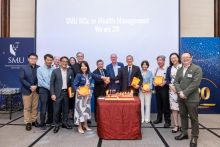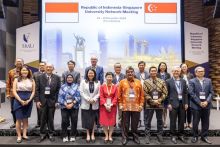Prof Lily Kong’s vision for universities as catalysts for societal progress
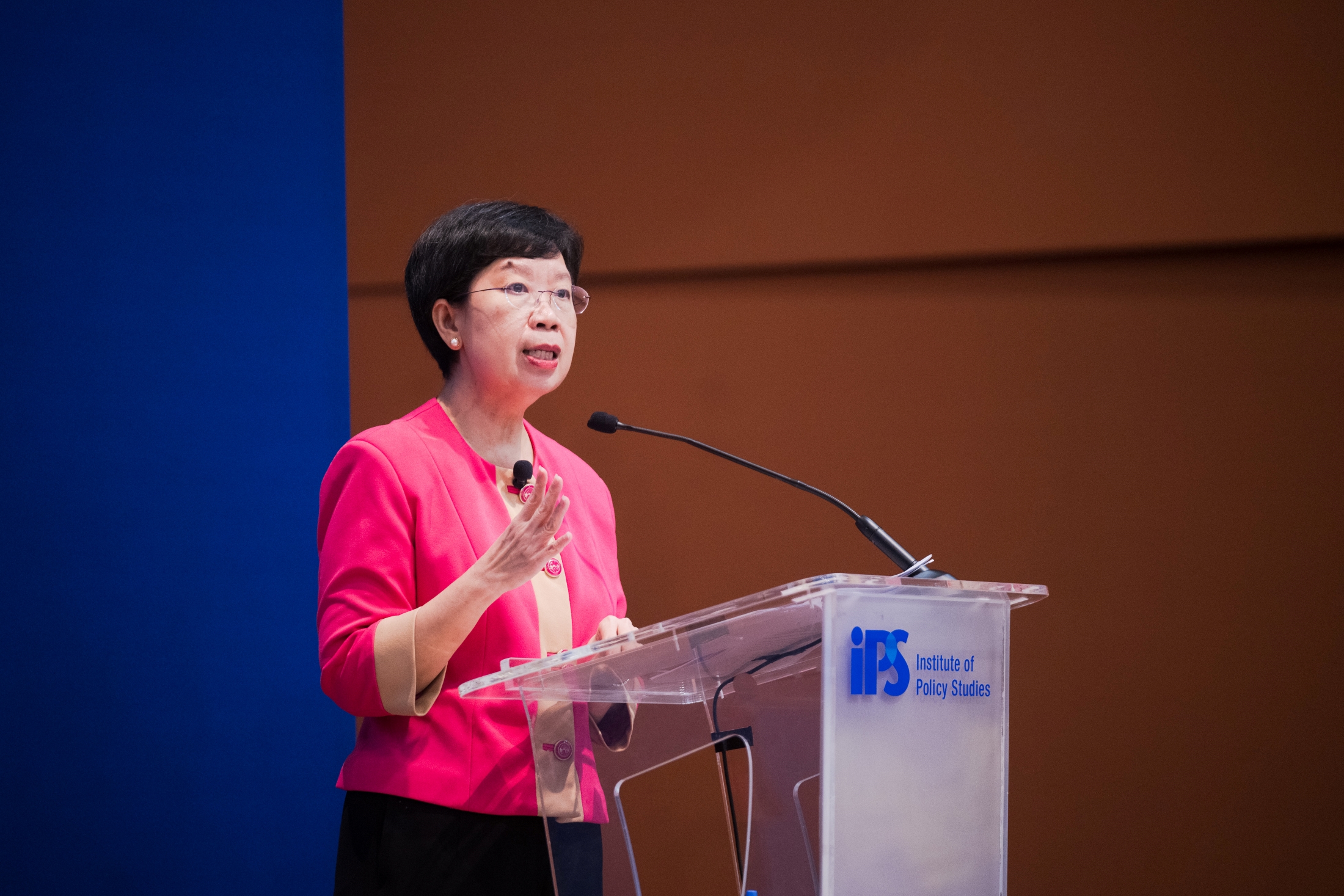
SMU President Professor Lily Kong, as the 15th SR Nathan Fellow, delivered a thought-provoking lecture series exploring the evolving role of universities in addressing societal needs. Hosted by the Institute of Policy Studies, her three 2024 IPS-Nathan lectures delved into universities’ historical impact, their responsibility to prepare individuals for a 100-year life, and the transformative potential of research as a catalyst for societal progress. The series showcased SMU’s leadership in driving forward-thinking education and impactful research for a changing world.
From the beginnings…
She opened her lecture series on 8 October 2024, at the Shaw Foundation Alumni House Auditorium, National University of Singapore.
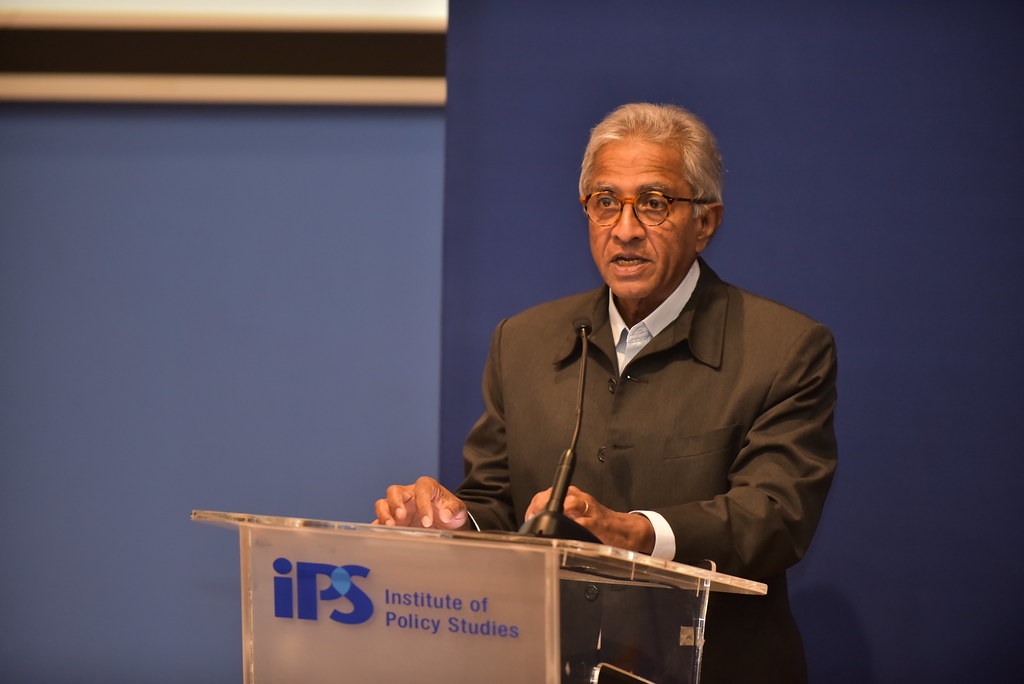
Titled, “Through the Looking Glass: Insights into the Origin and Evolution of Universities”, this inaugural lecture explored the development of universities over the centuries and their enduring impact on the societies they served.
Professor Kong shared that her lecture was a tribute to the late President SR Nathan, whose conversations and insights had inspired her. She showcased how universities evolved, and how they are shaped by social mores, political dynamics, and economic pressures, and reflect the societies they serve in many ways. From their religious foundations in medieval Europe and the intellectual flourishing of the Islamic Golden Age to their roles in modern America and China, universities are catalysts for change and innovation.
She also illustrated some pressing challenges that are facing institutions of higher education today, such as declining public trust, increased demand for economic relevance, and the delicate balance between teaching and research.
A key focus of her lecture was the relationship between higher education and social inequality, emphasising the urgent need for expanded access to higher education and robust support systems for students from underprivileged backgrounds.
The lecture was followed by a Q&A session moderated by Professor Tan Tai Yong, President of the Singapore University of Social Sciences. It delved into broad-ranging issues such as the role of universities in perpetuating elitism, the importance of critical thinking in an AI-driven world, and the necessity of industry collaboration.
Professor Kong herself emphasised the need for universities to adopt multidisciplinary approaches and commented on how educational systems can be optimised for holistic outcomes.
Universities for the 100-year life
The second lecture of the series was delivered on 4 November 2024. Titled “At the Crossroads: Universities for the 100-Year Life”, the lecture built on her first lecture and explored the urgent need for higher education to adapt to a world where individuals may live to 100 years or more.
During the lecture, Professor Kong challenged her audience to rethink established views about higher education. Referencing The 100-Year Life, a book written by London Business School’s Lynda Gratton and Andrew Scott, she outlined a stark reality: if individuals live to 100 and aim to retire with half of their final salary by saving 10 percent of their income, they might only be able to afford retirement when they are well into their 80s.
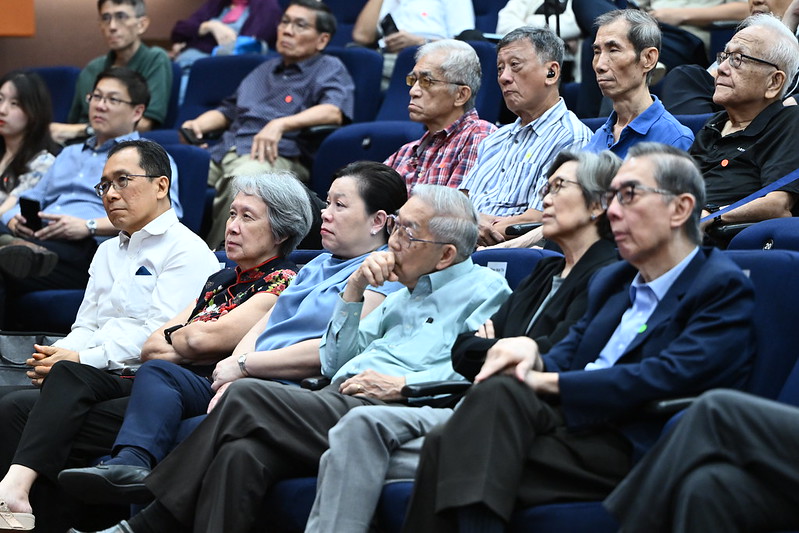
This signals the necessity of reimagining the traditional three-stage model of “education, work, retirement” and supporting lifelong learning and flexibility.
Professor Kong identified four key areas where disrupting thinking can help universities remain relevant and flourish well into the future, as they prepare individuals for longer, more dynamic life stages. These were:
- Fostering a holistic educational approach that goes beyond cognitive skills;
- Nurturing students’ human qualities and empathy;
- Fostering knowledge that transcends silos and tackles real-world problems effectively; and
- Transforming into lifelong partners that engage learners across all life stages.
During the Q&A session afterwards, moderated by Professor Chua Kee Chaing, President of the Singapore Institute of Technology, discussions focused on the importance of flexible academic structures that align with extended life stages.
Prof Kong highlighted the example of SMU’s College of Integrative Studies championing an integrationist interdisciplinary model that prepares students to tackle multifaceted challenges. She also explained how this was not a one-size-fits all model but rather, a pedagogical approach suited to students who embody attitudes of adaptability, reflexiveness, and self-direction.
Academic research as a catalyst for societal progress
Professor Kong delivered her third and final lecture of the series in “Beyond the Ivory Tower: Research and the Dilemmas of Quality and Relevance”.
Delivered on 27 November 2024, the lecture capped the foundations of her previous lectures, to focus on research as a guardian of intellectual freedom and a catalyst for societal progress.
Professor Kong also challenged the audience to consider how a “publish or perish” culture and an over-reliance on rankings undermine research integrity. She pointed out that these pressures often lead to issues like citation manipulation, the disconnect between academic research priorities and societal needs, and unsustainable working conditions for graduate students and early-career researchers.
In response to these challenges, she called for a fundamental rethinking of how research impact is evaluated, advocating for a shift from traditional academic metrics to a more holistic approach that recognises societal contributions alongside scholarly achievements.
She cited global frameworks like the San Francisco Declaration on Research Assessment (DORA) and the Leiden Manifesto for Research Metrics as being useful frameworks for this transformation.
She also highlighted the emergence of new evaluation tools, such as altmetrics (non-traditional ways of measuring impact of research) and policy citation tracking, which capture the broader societal impact of research in ways that traditional measures cannot.
The lecture was followed by a Q&A session moderated by Professor Chan Heng Chee, Honorary Professor at the Lee Kuan Yew Centre for Innovative Cities and 7th SR Nathan Fellow.
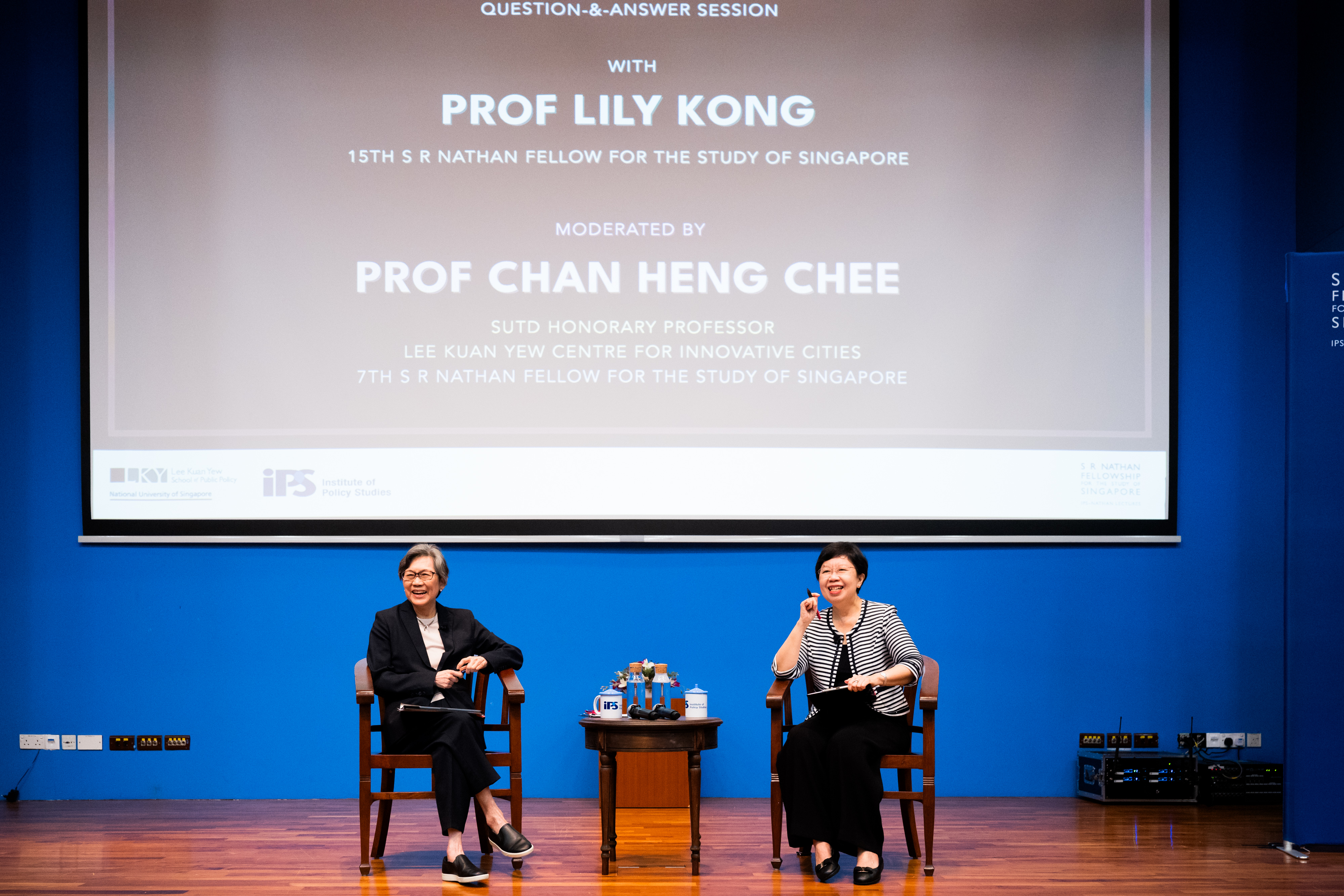
Reflecting on Singapore’s own academic landscape, Professor Chan opened the discussion by sharing how strategies for small-state survival have shaped Singapore’s intellectual and political discourse. In turn, Professor Kong highlighted pioneering biomedical research at Duke-NUS and Chua Beng Huat’s analysis of pragmatism as Singapore’s defining ideology.
These examples, she explained, demonstrate how researchers can navigate the intersection of theory and practice to address real-world problems, drawing from both local context and global insights.
The session concluded with remarks from IPS Director Janadas Devan, who expressed his gratitude to Professor Kong for her contributions as the 15th SR Nathan Fellow.
He highlighted how her lecture series, in addressing the philosophical underpinnings of universities, also focused with clarity on the practical and pragmatic challenges they face in remaining relevant to society.
See also:
- Through the Looking Glass: Professor Lily Kong traces the origins of universities in her inaugural IPS-Nathan lecture | SMU Newsroom
- Professor Lily Kong’s vision for the future of higher education - At the Crossroads: Universities for the 100-Year Life | SMU Newsroom
- Beyond the Ivory Tower: Professor Lily Kong concludes SR Nathan Lecture Series with a strong vision for research integrity and societal impact | SMU Newsroom

